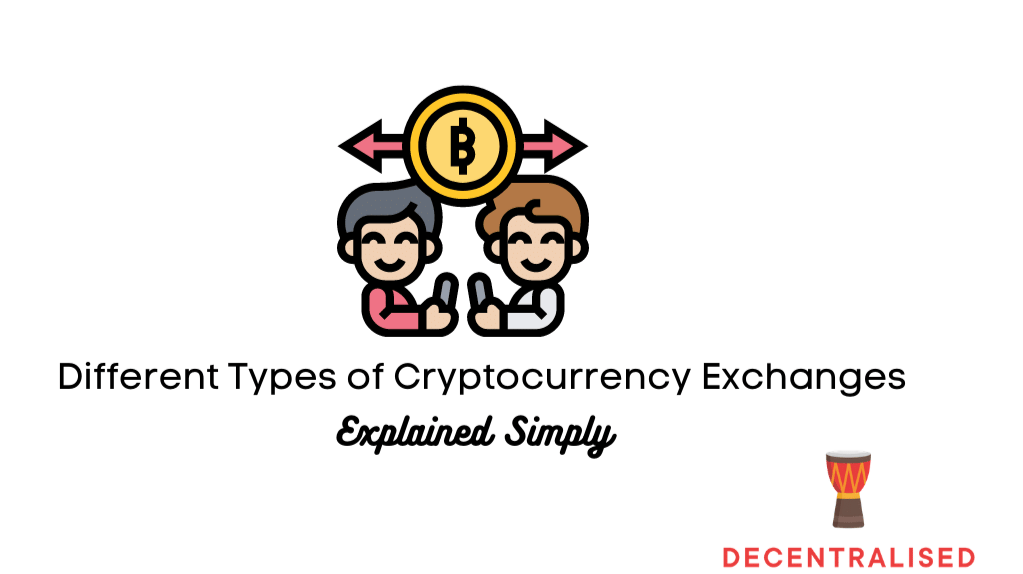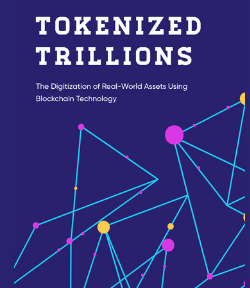
Different Types of Crypto Exchanges Explained
Examining different types of digital asset exchange platforms.
The noticeable increase in adoption and use of cryptocurrencies worldwide can largely be attributed to the availability of digital asset exchanges. They play a pivotal role in spurring the growth of bitcoin and other digital currencies. There are different types of exchanges you can buy bitcoin and other crypto assets from so before looking at the various types of exchange platforms available on the market, it’s important to understand the basic functions of a cryptocurrency exchange.
What is a Cryptocurrency Exchange?

A crypto exchange is a platform that allows customers to trade bitcoin and other crypto-assets for other assets such as fiat currencies and other digital currencies. Some exchanges also offer wallet services, allowing their users to store their crypto assets on their platforms. Most exchanges have started evolving and offering a range of other services such as lending, staking and are also augmenting their platform features to keep up with the growing industry and the wide array of new products being launched.
Different types of crypto exchanges
Centralized exchange (CEX)
A centralized exchange is the most common type of crypto exchange. It is a type of exchange that is handled by a third party. The exchange serves as a middleman between the buyer and the seller. The third party is in charge of all transactions that take place on the platform. Just like the traditional bank where you trust the bank with your fiat cash, traders entrust these CEXs with custody of their digital assets or fiat funds deposited on the platforms to facilitate trades. Most centralized exchanges are fiat-to-crypto or crypto-to-fiat on and off ramps responsible for most of the capital flows or new money entering the crypto markets from traditional finance. With these types of exchanges, users are essentially entrusting the safety and security of their assets to these platforms. CEXs are known to have the largest trading volumes and liquidity. The downside to these types of exchange platforms is that they are more susceptible to hacks.
Examples of Centralized Exchanges
Binance
Binance is a popular exchange that began operating in 2017. It is not only the largest CEX but the largest crypto exchange in the world. It is a global exchange with a strong focus on spot and futures trading. Binance users can trade over 400 cryptos including bitcoin (BTC). Binance offers wallet services, crypto loans and even has its own native token (BNB), and competitively low trading fees.
Kraken
Kraken is one of the exchanges that has a proven track record and been around for a while in the crypto space. The US-based exchange is one of the largest in terms of liquidity and it has a variety of crypto/fiat pairings. It has low transaction fees and places a strong focus on security. Kraken offers a staking service that allows users to receive returns on digital assets held on the platform.
Decentralized Exchanges (DEX)
The DEX is the opposite of a CEX. It is a type of exchange that does not require a third party to have custody of customer assets. No central body is in charge of transactions and trades. DEX are non-custodial meaning that users have control over their assets and trades. The exchange only serves as a platform to bring traders together. DEX uses an order book to connect buyers and sellers and also transfer funds between users’ wallets. A DEX operates on the blockchain network to guarantee smooth and secure transactions without a third party.
DEX users are in charge of their assets and can store their coins in cold wallets. Because a DEX does not hold users’ assets, it makes them less vulnerable to hackers. DEX registration doesn’t require personal information or proof of identity. Some DEXs don’t even require registration.
Examples of Decentralized Exchanges
Idex
IDEX is a popular DEX with a user-friendly interface. IDEX is currently available on Ethereum and Binance Smart Chain. Funds on a DEX such as IDEX are secured by an open-source smart contract and not a centralized counterparty thus reducing risk. It also offers advanced features such as their stake and earn feature which allows users to earn up to 50% of trading fees.
Waves
Waves DEX is an exchange that runs on the Waves blockchain. On the DEX users are in control of their crypto assets. Users can also buy BTC and trade it for the exchange token (Waves) or other altcoins available on the platform.
Peer-to-peer Exchange (P2P)

A peer-to-peer exchange is very similar to a DEX, in fact, the two can even seem indistinguishable. A P2P exchange is also an online platform that connects buyers and sellers of crypto and it isn’t controlled by any central body. The difference between a DEX and P2P exchange is that a peer-to-peer exchange does not require or use an order book, so buyers buy directly from the seller. The platform only performs the function of an escrow to facilitate safer and more secure transactions between traders.
For instance, if you want to buy bitcoin using a P2P platform in South Africa for example, you can simply transfer the local currency (Rand) equivalent of the BTC you want to buy to the seller and the seller makes a crypto transfer to you. However, the platform will temporarily hold the crypto in escrow and won’t send it to you until the seller confirms that you have sent them the money. This is because crypto transactions are not reversible and it disincentivizes potential bad actors on the p2p platform.
The good thing is that as the buyer, if you don’t receive your crypto but you’ve sent the funds, you can always dispute and provide proof of funds sent to the seller in order that you can receive the crypto in escrow. As a buyer using the P2P exchange, it is very important to choose a seller with a good reputation and feedback scores.
On a peer-to-peer exchange, KYC verification is needed but not compulsory, unlike the DEX, where it is almost never required. An example of a peer-to-peer exchange is Remitano.
Remitano
Remitano is a popular P2P exchange that started operations in 2015. The exchange runs in over 50 countries and it has grown to be one of the best exchanges to buy bitcoin and other cryptocurrencies. Remitano is a secure P2P exchange where you buy bitcoin and trade cryptocurrencies. Trading on Remitano is so seamless and intuitive giving new users a good user experience. Find out about the 20 best Bitcoin wallets to store your Bitcoin in 2021.






